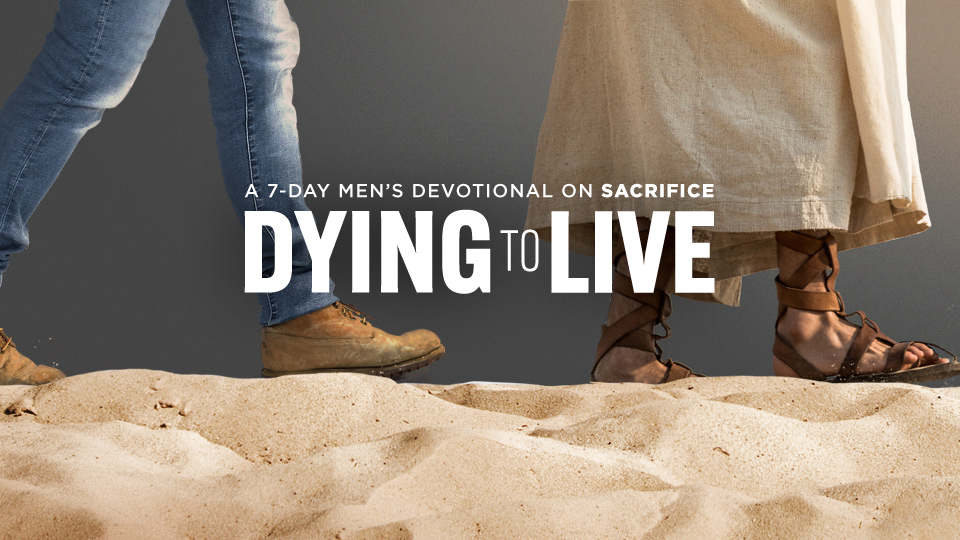Bible Verse: You are to lay your hand on the head of the burnt offering, and it will be accepted on your behalf to make atonement for you. You are to slaughter the young bull before the Lord, and then Aaron’s sons the priests shall bring the blood and splash it against the sides of the altar at the entrance to the tent of meeting. Leviticus 1:4-5
Scripture Reading: Leviticus 1-7; Genesis 3; Hebrews 9
I’m no vegetarian.
I’ll eat meat from any animal, cooked any way, and while as a grown-up I do eat my vegetables, I only do so because doctors say I have to, not because I enjoy them.
How many men are with me?
I have friends who are vegetarians out of concern over killing another living thing. And while I don’t share these concerns, I admit I sometimes have a tough time with the bloodiness of the Old Testament sacrificial system.
In the Law, God laid down a complex and comprehensive system of sacrificial worship, where each worshiper brought various types of food to the Temple. Grain and bread were brought and handed over to the priests, and animals were slaughtered—all as devotion to the LORD.
The sights, sounds, and smells of this worship must have been overwhelming. Bulls, sheep, and pigeons, all being killed and burned, over and over again. Sharing some grain and bread is obviously no big deal, but when it comes to animals, that’s an awful lot of killing happening, non-stop.
But why?
Why was it necessary? Why did God set it up this way?
As with everything in Scripture, it’s all pointing to Jesus.
Adam and Eve sinned, and we follow their example, and brought death into the world. Since sin separates us from God, and since God is the source of life, when you separate yourself from the source of life, all that is left is death.
Or, as Romans 6:23 puts it, “The wages of sin is death.” The fruit of our rebellion and separation from God is our demise.
But God loves us too much to leave us there.
In the Old Testament sacrificial system, He lets animals be sacrificed in our place—God was willing to let lesser creatures die so that the consequences of sin may fall on them, that His image-bearers might live. The animals experienced sin’s penalty so that we wouldn’t have to.
However, it was all temporary. It wasn’t the real fix, for “It is impossible for the blood of bulls and goats to take away sins” (Hebrews 10:4). To permanently solve the problem, Christ would come and die in our place, which we will discuss tomorrow.
Back then, animals were sacrificed so that the people might live before the LORD. In this Kingdom, death leads to life, and sacrifice leads to God.
Prayer: Lord, thank You for allowing other creatures to take the place of Your people. And thank You that we no longer need to do this because of what Jesus has done! Thank You for the life that You grant us. Amen.
Reflection: What comes to mind as you think about the Old Testament system? What insights do you glean today from how God used to do things?
Copyright © 2024 Impactus. All rights reserved.
About


